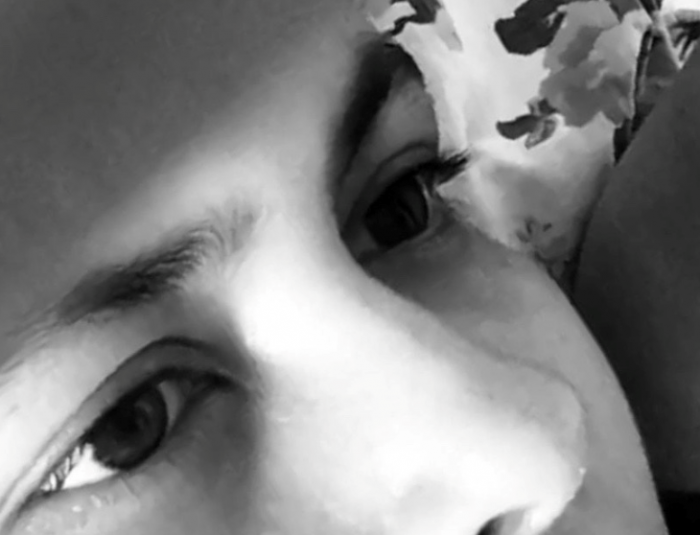This is a fiction of real life.
How funny and inaccurate does that sound?
Every family story that we have heard is someone else’s account. Is it not?
The story has three stages:
1. When it happened in real-time.
2. When the actor or participant in the act narrates it.
3. When we, the listener, have understood.
Likewise, this story has its three stages. And that is the reason I started out saying that it is a fiction of real life.
She was born in 1918 or thereabouts.
So I am told.
No one really knows when exactly she was born. There was no real record in those times in India.
She got married, but not much is known of her married life or her husband.
The facts remain, though, that she was married, had five children, was banished from the place, and came back to her maternal home with some jewelry and her children in tow. There, she started to put together a life of existence.
The facts, however grim, fade in comparison to her spirit. Once cooking from their meager belongings, her playful brother squeezed the water in the boiling lentils, in spite of that fact that it was the only meal for her and the children.
What she did with that, she never recounted. But her children saw and they recounted it much later. Fiction, truth, or imagination, it taught the lesson of restraint to generations to follow.
But she never spoke about any such thing. She recounted with pride her engagement with the Indian freedom movement and the joy when India attained freedom in 1947. She spoke of personalities who were inspiring to her. She spoke gently about her family and did not miss a single week of going to meet her mother on her bed. I was in tow. And I remember her simply listening to what was being said around her.
She was a story in herself. I grew up with six aunts and uncles. She never mentioned that her youngest was an adopted kid. Her brother was killed by the police in an unusual encounter, leaving behind his wife and a newborn child. She adopted the young kid so that the wife could upskill herself and earn enough to live her life. She had little to sustain her family and yet, her kindness overflew and she took the kid in under her wings.
She believed in learning and nurturing.
I got to know this much later, after living for 18 years with her. She had a kind heart. She believed in self-reliance. She believed in “equality” and “learning.” Maybe because of her experiences, she saw the value of being independent. I may never know why—and it’s not important.
She believed in the growth of individuals. But the beauty was in the balance with which she conducted her life.
She never ever mentioned how she sold off her jewelry or whether she compared what she had and what she did not. But she did talk about the desire to raise her children, keep them fed, and keep them going. She never looked back and bemoaned her losses.
She looked forward and believed in the principle of The Gita: “all human beings are mere vehicles of incidents occurring around us.” She could explain it to a six-year-old me so simply, because she lived the line. Never to complain, never to look back at losses, but excited to live in the present moment—in the pages of the newspaper and in cheering on the Indian cricket team.
She was a lifelong learner.
She was entangled amongst bitter family rows. While the people around her raised their voices and talked behind the backs of one another, she remained resolute, like a mountain. I do not know what she said to my aunt when she visited her every now and then amidst the family conflicts.
I saw them sit together and speak quietly. Their body language was never of that of speculating or manipulating. It seemed to me that my aunt was drawing strength from her sitting by her side and listening. Sometimes, she was listening with complete presence.
I never heard her giving advice to a family member against another. I think one was scared to expose their mean selves in front of her.
She was the quiet oak tree of the family. She knew her branches were rotting. And she knew that she had done her duties—she gave them food for survival and walked a path of restraint. She gave them a direction and it was not upon her for her branches (her children) to follow.
She lived in the present moment.
She used to visit the temples, often with me in tow. I could not understand the chants, but I believe she used to find a momentary distraction from her own family. I never heard her chant, but when she held a rosary, it was as if she was giving her attention to the beads over and over again.
She was a vegetarian, as in India the widows had to eat vegetarian food those days. No matter how tired she was, she stuck to her routine and made her simple meals every day. That is what I saw in the 21 years of my life. She was formidable and she was never sick.
She appeared to draw her strength from within and with unshakable faith in God. She used to pick up the learnings from spiritual scriptures and sing songs to me, which to date, I have not forgotten.
She was a person of faith. Maybe, because that is what kept her going.
I could not bid farewell to her physical body when she transitioned, but she died a peaceful death. That is what she had always wanted—and God may have granted her last wish. And maybe, mine too.
I remember her waving goodbye to me on my way to college and that is what I remember of her last living physical body. A smile, a sense of calm, and a promise—I will always be there with you.
She still visits me every now and then—when my chips are down or when I was pregnant with both my children—giving me her blessings.
I am fortunate to have experienced her the way I did.
This is the fiction of my pillar of strength. This is the way my hippocampus remembers her. These are my stories.
And each individual who may have experienced her would have their own versions—and all are true in their own realm.
The stories that we spin around our lives and keep repeating are either fanciful or dreadful. But if we could care to remember the lessons from the stories, and attempt not to repeat our own mistakes, then we become real—living beyond the stories.
One of the many ways to live is to leave our stories behind and completely be in the present moment. It is hard, but that is the only peaceful path to this journey of life.
Many waters have flown
In between now and then
Who is the scriptwriter and who is the observer
Who is the fact-checker and who is the story spinner
A moment gone by is never to return
So live in the present moment
Give this moment your best shot
Give this moment all the love
And let the universe decide your path, your destiny.
I am the gatekeeper of my actions and thoughts
The universe will weigh in its judgment
Till then, I stay, moment by moment.
May you be happy
May you be healthy
May you be free of physical sufferings
May you be free of mental sufferings
May you live your life, in soulful presence.
~









Read 9 comments and reply